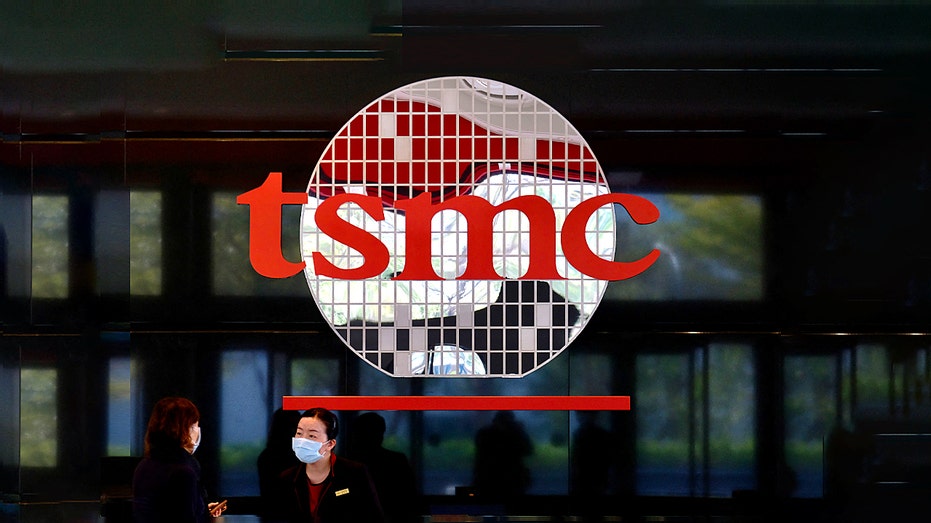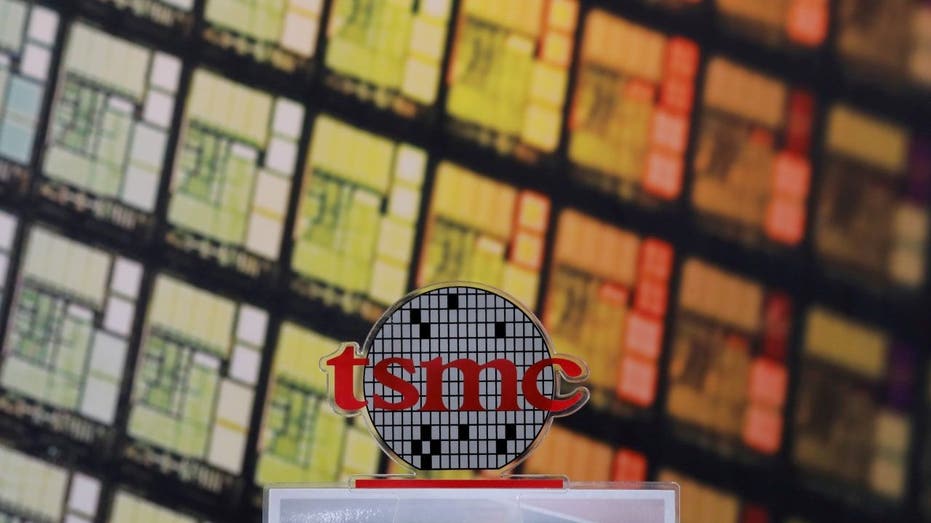TSMC expects to outsmart the chip downturn
Chip-making juggernaut thinks it can avoid damage from economic slowdown
Technology 'unlikely' to emerge as a market leader in 2023: ICON Advisors CEO Craig Callahan
'The Claman Countdown' brings in ICON Advisors CEO Craig Callahan to discuss his market and recession predictions for 2023.
The world’s largest contract chip maker finished 2022 on a high note. But with a recession—or at the very least slower growth—lurking around the corner in the U.S., 2023 will probably be a much more challenging year.
Taiwan Semiconductor Manufacturing Co., which counts most of the biggest chip designers including Apple Inc. and Nvidia Corp. as its customers, is a bellwether for the chip industry. And the signal it is sending is worrying—at least for the first half of 2023.
TSMC expects this quarter’s revenue to decline quarter-on-quarter as weak demand for consumer electronics takes its toll, the company said Thursday in its earnings briefing. At the midpoint of its guidance, sales would drop 14% from the December quarter in the first quarter of 2023.

Employees work at the headquarters of the world's largest semiconductor maker TSMC in Hsinchu on January 29, 2021. (Photo by Sam Yeh / AFP) (Photo by SAM YEH/AFP via Getty Images) (Photo by Sam Yeh / AFP) (Photo by SAM YEH/AFP via Getty Image / Getty Images)
Profit could take an even bigger hit. The firm projects its gross profit margin will be around 55%, compared with 62% last quarter. TSMC will continue to invest in its most advanced nodes, though capital expenditures likely won’t go up from last year’s levels. It expects to spend between $32 billion and $36 billion this year, compared with $36.3 billion in 2022.
BIDEN VISITING ARIZONA AS TSMC SET TO BOOST STATE'S CHIP INVESTMENT TO $40B
| Ticker | Security | Last | Change | Change % |
|---|---|---|---|---|
| TSM | TAIWAN SEMICONDUCTOR MANUFACTURING CO. LTD. | 349.01 | +18.70 | +5.66% |
| AAPL | APPLE INC. | 278.12 | +2.21 | +0.80% |
| NVDA | NVIDIA CORP. | 185.41 | +13.53 | +7.87% |
Even though TSMC has managed to perform better than many in the chip industry, it is inevitable that a slowdown—such as the one unfolding now—is going to hurt it, too. Inventories at chip companies have piled up as demand for smartphones and personal computers falls off a cliff. Demand from data centers has been relatively resilient, though the market is starting to soften there.
TSMC’s revenue slowed down last quarter but it managed to raise prices to offset the dropoff in demand. A weak Taiwanese dollar also helped: The chip maker’s plants are based in Taiwan but most of its customers are overseas. Its gross profit margin last quarter improved by nearly 2 percentage points quarter-on-quarter to 62%.

A logo of Taiwan Semiconductor Manufacturing Co (TSMC) is seen at its headquarters in Hsinchu, Taiwan August 31, 2018. REUTERS/Tyrone Siu (AP Newsroom)
Counterpoint Technology Market Research expects revenue for the foundry industry to drop 5% to 7% year over year in 2023. But TSMC remains sanguine that it will outperform the industry with a strong rebound in the second half. It forecasts its full-year revenue will still beat 2022 levels.
WORLD'S LARGEST IPHONE FACTORY BACK TO 90% CAPACITY IN CHINA: REPORT
Actual demand for its most advanced 3-nanometer nodes, which have just started mass production, will also affect whether it can achieve that ambitious target. Customers such as Apple will likely want to put those new chips into their new smartphones and laptops—but ultimately, real demand will depend on the state of the global economy. And with a possible recession waiting in the wings, consumers might or might not be inclined to splash out on the latest gadgets this year.

Apple uses microchips from TSMC in its iPhone's and other consumer electronics. (Apple)
CLICK HERE TO GET THE FOX BUSINESS APP
TSMC’s technological heft and healthy margins mean it will probably outperform most competitors whatever happens in 2023. Hitting its ambitious guidance might prove more challenging—unless the U.S. manages its elusive soft landing and Chinese households and businesses start spending seriously again.




















